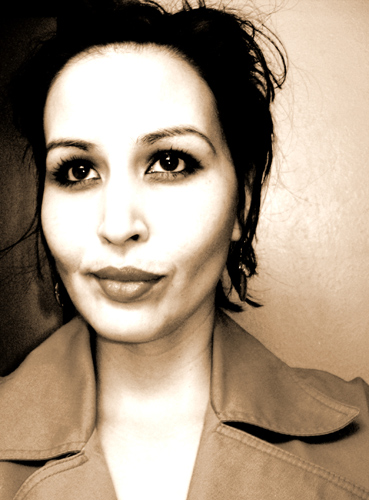|
|
||
|
Edge This drive along the road the bend the banks behind the wheel I am called Mommy. My name is Mommy on these drives the sand and brush the end of winter we pass. You in the rearview double buckled back center my love. Your mother's mouth has a roof your mother's mouth is a church. A hut in a field lone standing. The thatched roof has caught spark what flew from walls the spark apart from rock from stable meaning. Large car steady at the curve palest light driest day a field of rocks we are not poor sealed in windows. You hum in the back. I do not know what to say how far to go the winter near dead as we drive you do not understand word for word the word for you is little. But you hear how it feels always. The music plays you swing your feet. And I see it I Mommy the edge but do not point do not say look as we pass the heads gold and blowing these dry grasses eaten in fear by man and horses. Akka, Akka that I would write to you that I would sea walls in stone and mortar and black bars that I would in your tradition Akka wave wave each one in count to sin or that we do not sin not as before but forty times closer you are here Akka the rise and roll the wash wash in your prison in you I was tearless all the stories I heard 1 a child called and called to Him from stairs singing this existence the boyish ring his voice he balanced on roof the wide weathered walls and neighbors listened the city its plots 2 a young man through skylight fell his body on tile on floor on him they found in pocket three stones he kept not owned so small 3 on a banner hung in a quiet room embroidered words a woman wrote all my life I have been alone or was it lonely that I would not understand the veil a skin between knowing and listening would hear her words as my own would lose the count the waves exact sin did I Akka with you erase or is it better to visit not take from the sea redemption Akka where you were years ago so dirty polluted birds overhead fell in flight died there with you still I listened tearless dear Akka in photos I watch the grey so typical of you the wind and all your visitors' hair whipped across eyes their faces and always your water grey sliding such that I would not swim but later write to that place I keep still always kept unflinching I did not cry Akka on your staircase the black rails both hands at my sides but I write Akka Akka you will not respond Akka the inaudible slap slap at your sea gates so many unremarkable waves arched unfolding if I did not take from you Akka your sea a cleansing still I held them unseen your white stones in my hands weightless and breaking. Tokahan
v. Used in reply to, what has become of it? Found in the answer: it is light and those bubbles blown from a plastic wand to spring air into a hundred silent bursts. Or the large tree shadow, the trunk of it, with finger and limb tips across the lawn to my toe. It is the talk we engage and the unnoticed way this shadow rears back, with black arms and twig teeth it engulfs me, your love, whole. Is sometimes disguised as the blue water-balloon of his face in photos he sent. That is, to click the attachment, enlarge on a polished screen-to see cheek-eye-bridge of his nose together, lumped as blue-purple-one. Though it's not to wield the swift, back-forth stroke of Z, a letter wherein I found a poet's fondness for zither and zeal: a discovery I stake as my own, as if I'm man on the moon with mirror head and national flag; bouncing and weightless, so clever to step into the minds of others. But in this friend I haven't seen in years, in photos of wounds and his swollen head, is the question of why he would click send.
It must be answered with an alternate word: So I return to this: Tokahan, this shell and husk, this outer word. Tokahan, I say, in the shaking he gave me, my friend, his face, the world. Tokahan, for why I never did hit reply. Tokahan, my fingernails-dirt lined, digging. Tokahan, in guttural silence under a swing and whump. Tokahan, this tire-iron to the eye. Layli Long Soldier is Oglala Lakota-her family is from Pine Ridge, South Dakota and northwestern Idaho. She holds a BFA in creative writing from the Institute of American Indian Arts and is a two-time recipient of the Truman Capote Creative Writing Fellowship. She is also a recipient of the 2009 Naropa University Poetry Scholarship. Her first chapbook of poetry is titled Chromosomory (Q Ave Press, 2009). |
||
|
|
||
